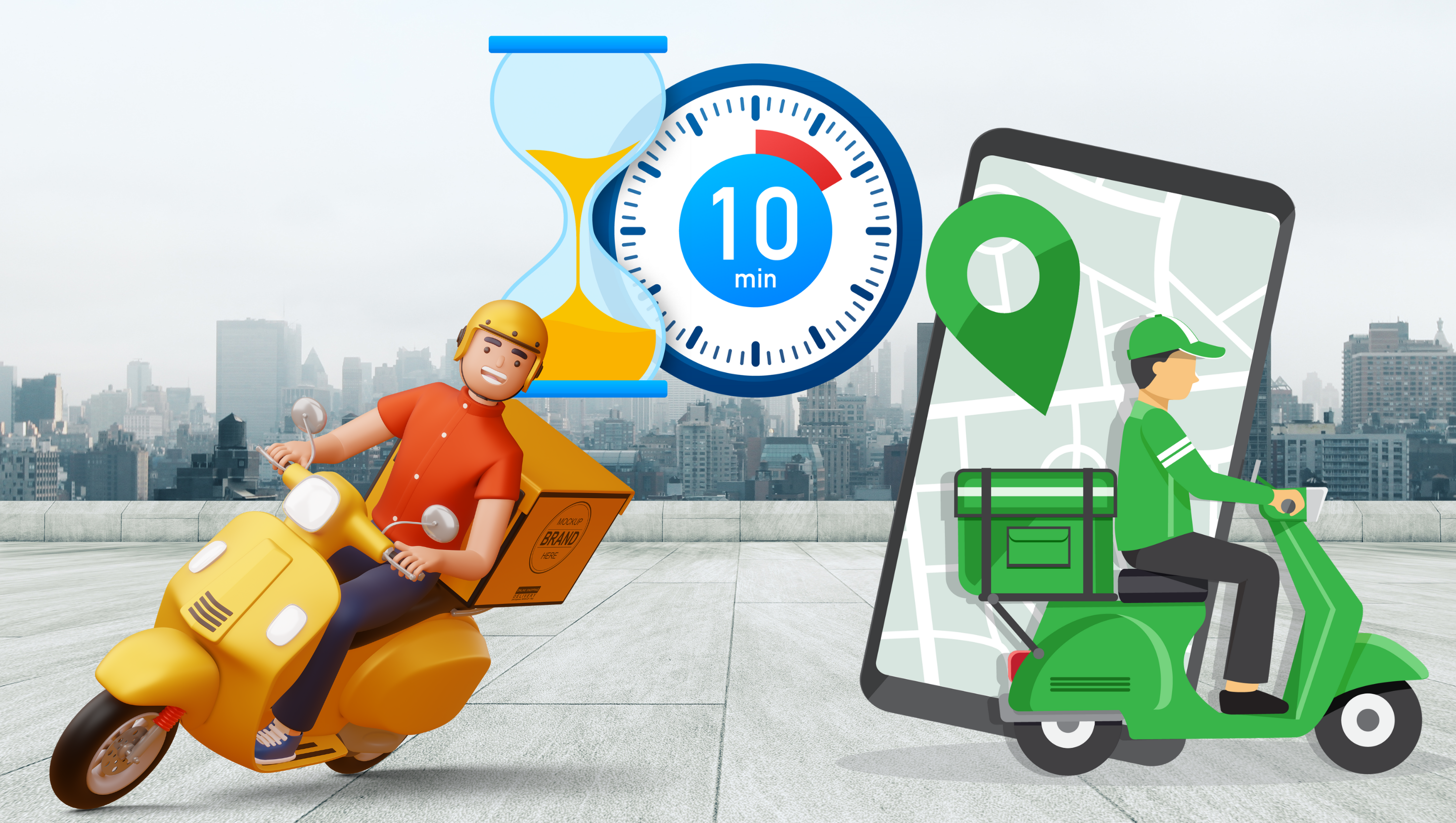Introduction: The Temporal Compression of Consumption and Its Systemic Fallout
As the founder of WellbeingSutra.com, a platform committed to the integrative wellbeing and ecologically mindful living, I have become increasingly perturbed by the meteoric proliferation of 10-minute delivery services across India’s urban landscape. Ostensibly an emblem of hyper-efficiency, this model of accelerated consumption represents a profound disruption to traditional food systems, behavioural norms, and socio-environmental equilibrium.
What appears to be a triumph of logistics is, in reality, precipitating multidimensional harm—undermining nutritional autonomy, compromising mental health, imperilling delivery personnel, and exacerbating ecological degradation. This article provides an evidence-based interrogation of these dynamics.
1. The Erosion of Nutritional Integrity Through Algorithmic Convenience
The commodification of nourishment under the aegis of quick commerce platforms has tangibly reconfigured dietary patterns. A seminal 2022 study published in the Journal of Family Medicine and Primary Care observed that 62% of Indian medical students regularly consumed app-delivered meals, disproportionately comprising calorie-dense, ultra-processed food items.
“Convenience is leading to compromise—on nutrition, digestion, and intention,” asserts Dr. Radhika Mehra, Clinical Dietitian, AIIMS.
Public health nutrition literature has extensively correlated the habitual intake of such foods with increased incidence of obesity, metabolic syndrome, and Type 2 diabetes. The expedited delivery model institutionalises these trends, making nutritionally deleterious options hyper-accessible while undermining food literacy and meal planning—a critical concern for India’s burgeoning youth demographic.
2. Impulsive Consumption and Neuropsychological Dysregulation
From a neurobehavioural standpoint, 10-minute delivery platforms activate reward circuitry in the brain that reinforces impulsivity and hedonic consumption. As evidenced in behavioural economics, immediate gratification reduces cognitive resistance and amplifies dopamine-driven consumption loops.
A 2022 exposé in The Swaddle documented clinical observations of increased disordered eating behaviours among young adults using food delivery apps as a coping mechanism for emotional dysregulation.
“People with low impulse control are more prone to binge-eating behaviours because delivery apps remove friction from the process,” explains Dr. Malini Anand, Clinical Psychologist.
Further, a peer-reviewed study published in Appetite (University of Melbourne) indicated that habitual app-based food ordering was associated with a 51% rise in reported depressive symptoms. The implications for mental health and emotional resilience are severe, particularly when intersecting with financial anxiety and self-esteem deterioration.
3. Occupational Health Crisis: The Human Cost of Delivery Speed
The 10-minute delivery promise is operationalised through a precarious gig economy that subjects workers to extreme occupational hazards. Data from Bengaluru’s traffic authorities revealed over 17,000 violations within one week of launching such services—many involving platform-pressured delivery riders.
Investigative reports by Reuters and The Print illustrate the structural vulnerabilities of this labour force:
- Absence of fixed wages and employment benefits
- Performance monitoring via algorithmic surveillance
- Heightened exposure to road accidents due to time-bound expectations
“Is hot food worth a life lost?” interrogates Shaik Salauddin, President of the Indian Federation of App-based Transport Workers.
These conditions constitute a public health liability and demand immediate regulatory and corporate intervention to address systemic exploitation under the veneer of convenience.
4. The Economics of Compulsion and Psycho-financial Dissonance
The compulsive consumption facilitated by instant delivery incurs not only caloric but also economic costs. Reports from Outlook India indicate that urban millennials and Gen Z professionals spend upwards of ₹20,000 monthly on food apps—often accompanied by regret, stress, and disrupted sleep cycles.
“The guilt that follows binge spending and binge eating affects productivity and sleep cycles,” observes behavioural economist Reetika Kapoor.
This aligns with neuroeconomic models linking impulsive behaviour to short-term hedonic pleasure followed by prolonged emotional and financial strain. Such patterns perpetuate a feedback loop that undermines both mental health and financial literacy, particularly within urban knowledge economies.
5. Ecological Consequences and Urban Commons Disruption
Rapid delivery logistics have non-trivial environmental repercussions. Each micro-transaction contributes to:
- Increased carbon emissions from two-wheeler and vehicle fleets
- Amplified plastic waste from over-packaging
- Intensified urban congestion, impairing shared public infrastructure
The World Economic Forum projects a 60% increase in last-mile delivery emissions by 2030, with India’s densely populated metros poised to absorb the brunt of this surge. Concurrently, the displacement of kirana stores—cornerstones of India’s decentralised food economy—weakens local resilience and dissolves long-standing community ties.
6. Culinary De-skilling and Cultural Attrition
India’s traditional food systems—anchored in Ayurvedic principles, seasonal variation, and familial preparation—are being systematically eroded by convenience-centric models. The proliferation of ready-to-eat meals threatens:
- Intergenerational culinary knowledge
- Shared domestic routines that cultivate relational security
- Ritualistic eating practices embedded in regional identity
Multiple longitudinal studies affirm that home-cooked meals are correlated with improved nutrient profiles, lower BMI, and better psychosocial outcomes. The decline of such practices under the pressures of digital acceleration represents a loss of both tangible and intangible heritage.
Conclusion: Towards a Regenerative Framework of Food and Time
The advent of 10-minute delivery services in India exemplifies a techno-capitalist paradox—where speed undermines sustainability, and convenience compromises consciousness. While technological innovation is not inherently misaligned with wellbeing, its deployment must be governed by principles of equity, ethics, and ecological accountability.
As a proponent of holistic health, I advocate for a recalibration of priorities:
- Reinforce domestic food preparation as a cornerstone of wellness
- Revitalise kirana ecosystems to sustain local economic circulations
- Educate consumers on the cognitive impacts of impulse-driven technology
- Legislate for the safety and dignity of gig workers
Because wellbeing is not measured in minutes—it is cultivated through intention, equity, and collective care.
Citations:
- Journal of Family Medicine & Primary Care (2022)
- The Swaddle (2022)
- Appetite, University of Melbourne Study (2022)
- Reuters India Report (2024)
- Outlook India (2023)
- World Economic Forum Logistics Emissions Report (2022)
- Hindustan Times (2024)















